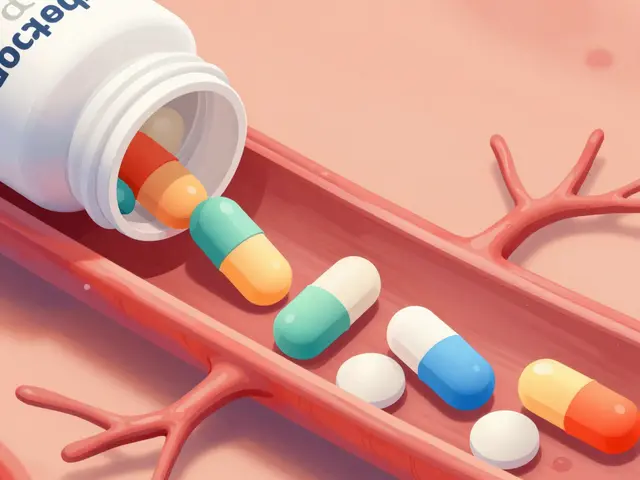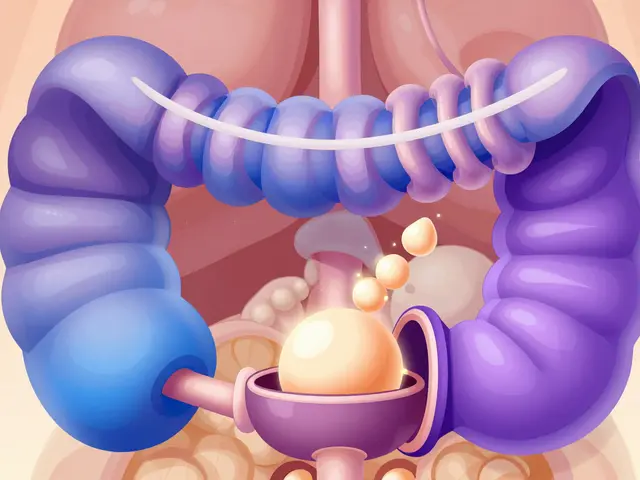Understanding Chronic Swelling
Before diving into the psychological impact of chronic swelling, it is essential to understand what it is and what causes it. Chronic swelling, also known as edema, is a condition where there is an excessive build-up of fluid in the body's tissues. This can occur for a variety of reasons, such as poor circulation, injury, or underlying medical conditions like kidney or heart disease. The swelling can be uncomfortable and painful, and can significantly impact a person's quality of life.
As someone who has experienced chronic swelling first hand, I know just how frustrating and debilitating it can be. It not only affects your physical health but also your mental and emotional well-being. In this article, I will explore some of the psychological effects of chronic swelling, as well as some strategies for coping with these challenges.
The Emotional Toll of Chronic Swelling
One of the most significant psychological impacts of chronic swelling is the emotional toll it can take on a person. The constant discomfort and pain can lead to feelings of frustration, anger, and sadness. It is not uncommon for individuals with chronic swelling to feel like they are trapped in their own body, which can lead to feelings of helplessness and hopelessness.
Additionally, the physical limitations caused by chronic swelling can affect a person's ability to engage in activities they enjoy or even perform basic tasks, such as walking or dressing themselves. This loss of independence can lead to feelings of depression and anxiety, as well as a sense of isolation from friends and family.
Body Image and Self-Esteem Issues
Another psychological impact of chronic swelling is the effect it can have on a person's body image and self-esteem. The visible swelling can cause feelings of self-consciousness and embarrassment, leading to a negative self-image. This can be particularly challenging for those who have always taken pride in their appearance or those whose careers depend on maintaining a certain physical aesthetic.
Furthermore, the physical limitations caused by chronic swelling can also contribute to low self-esteem, as individuals may feel less capable or less valuable than their peers. This can be particularly difficult for those who were once highly active or athletic and now find themselves struggling to keep up with their former abilities.
Stress and Chronic Swelling
It's no secret that chronic swelling can cause a great deal of stress in a person's life. The constant pain and discomfort can make it difficult to focus on tasks or even enjoy leisure activities. Additionally, the financial burden of medical expenses and the potential loss of income due to physical limitations can cause significant stress for individuals and their families.
Chronic stress can have a detrimental effect on a person's mental health, leading to increased risk for depression, anxiety, and other psychological disorders. Moreover, stress can exacerbate the physical symptoms of chronic swelling, creating a vicious cycle that is difficult to break.
The Impact on Relationships
Chronic swelling can also have a significant impact on a person's relationships. The emotional and physical challenges associated with the condition can strain relationships with friends, family members, and romantic partners. The individual may feel like they are a burden to others, while loved ones may struggle to understand the extent of the pain and limitations caused by the swelling.
Furthermore, the stress and emotional toll of chronic swelling can lead to mood swings and irritability, which can further strain relationships. Open communication and understanding from both parties are crucial in maintaining strong, supportive relationships during this challenging time.
Strategies for Coping with the Psychological Impact of Chronic Swelling
Given the significant psychological challenges associated with chronic swelling, it is essential to develop coping strategies that can help improve mental and emotional well-being. One such strategy is seeking professional help from a mental health professional, such as a psychologist or therapist. These professionals can provide valuable tools and techniques to help you manage stress, anxiety, and depression related to chronic swelling.
Another crucial aspect of coping with the psychological impact of chronic swelling is maintaining a strong support system. Surrounding yourself with understanding and supportive friends and family members can make a world of difference in managing the emotional challenges associated with your condition. Additionally, joining a support group or connecting with others who are experiencing similar challenges can provide a sense of community and help alleviate feelings of isolation.
Practicing Self-Care and Mindfulness
Lastly, practicing self-care and mindfulness can help improve your mental and emotional well-being while living with chronic swelling. Prioritizing activities that bring you joy, relaxation, and a sense of accomplishment can help improve your mood and overall outlook on life. Additionally, incorporating mindfulness practices such as meditation, deep breathing exercises, or progressive muscle relaxation can help reduce stress and anxiety levels associated with chronic swelling.
In conclusion, the psychological impact of chronic swelling can be just as significant as the physical symptoms. By understanding these challenges and implementing coping strategies such as seeking professional help, maintaining a strong support system, and practicing self-care and mindfulness, it is possible to improve your mental and emotional well-being while living with chronic swelling.





Samantha Vondrum on 12 June 2023, AT 12:51 PM
Dear community, thank you for sharing this comprehensive overview of the psychological ramifications of chronic edema. It is evident that the interplay between physical discomfort and mental health deserves careful consideration 😊. The description of emotional toll, such as frustration and helplessness, aligns with what many patients report in clinical practice. Moreover, the emphasis on self‑esteem issues highlights a facet often overlooked in standard medical consultations. I appreciate the inclusion of coping strategies, particularly the recommendation to seek professional mental‑health support, which can be instrumental in breaking the vicious cycle of stress and swelling. Additionally, fostering a robust support network is indispensable for mitigating isolation. The suggestion to engage in mindfulness practices is well‑grounded in contemporary evidence, and I would encourage readers to explore guided meditation apps if in‑person sessions are unavailable. Finally, I commend the author for presenting the information in an empathetic and structured manner, making it accessible to both patients and caregivers alike. 🙏